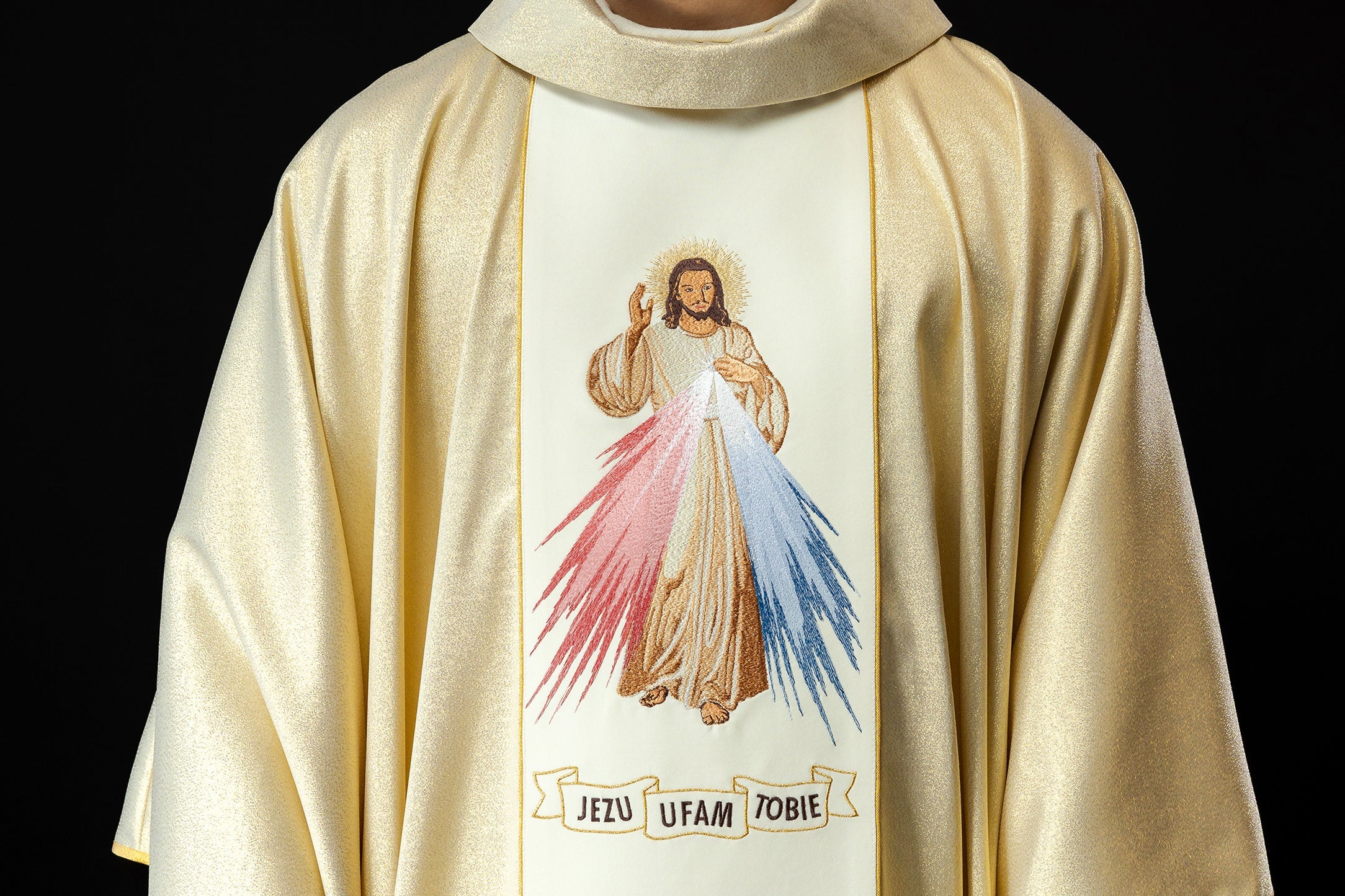
Confirmation Preparation: A Guide for Priests
Preparing for the Sacrament of Confirmation – A Guide for Priests
The sacrament of confirmation, one of the sacraments of Christian initiation, is a crucial moment in the spiritual development of a young person. It is an event that strengthens faith, enables bearing witness to Christ, and equips with the gifts of the Holy Spirit necessary for living a full Christian life. For priests, as ministers of this sacrament and shepherds of souls, preparing candidates is a task of fundamental importance. This guide aims to provide practical tips and inspiration on how to effectively and comprehensively lead young people through this important stage of formation.
I. Theological and Pastoral Foundations of Preparation
Before we begin specific pastoral activities, a deep understanding of the theological dimension of the sacrament of confirmation is crucial. In the context of the Church, confirmation is a sign of strengthening by the grace of the Holy Spirit, which is granted in the sacrament of baptism. It is a sacrament of Christian maturity, which calls for an active life of faith and witness.
1. What does the Catechism of the Catholic Church say about confirmation?
The Catechism of the Catholic Church (CCC), in points 1285-1321, clearly presents the essence of confirmation. It emphasizes that this sacrament, through the laying on of hands and anointing with sacred chrism, imprints an indelible mark on the soul, bestows the Holy Spirit, and enables courageous profession of faith and living it daily. It is crucial to understand that confirmation is not an end in itself, but the beginning of a new life as witnesses of Christ.
2. The Holy Spirit as the center of preparations
The central element of preparation for confirmation should be bringing the figure of the Holy Spirit closer – His presence in the life of the Church and every believer. He should be shown not as an abstract force, but as a Divine Person who acts in us, enables us, and leads us. The presentation of the seven gifts of the Holy Spirit (wisdom, understanding, counsel, fortitude, knowledge, piety, fear of the Lord) should be accessible and related to specific life situations of the candidates.
3. The role of the parish community in formation
The parish community plays an invaluable role in the process of preparing for confirmation. Candidates should feel part of it, engage in the life of the parish, and experience support from parents, godparents, and other members of the community. Formation programs should support this through common prayers, retreats, adorations, or volunteering.
II. Practical Aspects of the Formation Program
Effective preparation requires a thoughtful program that takes into account various aspects of the young person's development – intellectual, emotional, and spiritual. The program should be dynamic, engaging, and tailored to the age and needs of the candidates.
1. Structure and duration of preparations
Typically, preparations for confirmation last from several months to even two years, often integrating with preparation for First Holy Communion. It is worth planning a cycle of catechetical meetings, retreats, days of recollection, and practical evangelistic activities. Regularity of meetings is crucial for building the habit of systematic work on oneself.
2. Program content – what should be included in teaching?
The formation program should cover a wide range of topics, such as:
- Lecture on the sacrament of confirmation: Its essence, effects, rites, meaning of the gifts of the Holy Spirit.
- Life in the Holy Spirit: Prayer, reading the Holy Scriptures, sacramental life (especially the Eucharist and penance), virtues and gifts of the Holy Spirit.
- Identity of a Christian: Baptism as the foundation, the meaning of belonging to the Church, the calling to holiness.
- Witness of faith: Evangelization, apostolic life, engagement in the Church and the world.
- Important topics: Spiritual dangers, relationships with peers, the use of media.
3. Methods of working with youth
Modern catechetical methods are key to engaging youth:
- **Dialogue and discussion**: Encouraging asking questions and expressing one's own opinions.
- **Working in groups**: Joint problem-solving, discussions, projects.
- **Life testimonies**: Inviting lay people actively involved in the life of the Church who can share their experience of faith.
- **Multimedia tools**: Using films, presentations, music to make the message more attractive.
- **Evangelistic games and activities**: Including elements of play that help to assimilate knowledge and integrate the group.
- **Spontaneous prayer and adoration**: Encouraging a personal relationship with God.
4. Choosing a patron saint and confirmation sponsor
Choosing a patron saint and confirmation sponsor is an important element of preparation. Candidates should be encouraged to learn more about the life of the chosen saint, his/her characteristics and virtues, so that he/she becomes an authentic role model. The role of the sponsor is equally important – it should be a mature Christian who will support the confirmed in his/her further life of faith.
III. What products from Haftina's offer can be helpful?
Haftina Textile Group Sp. z o. o. offers a wide range of products that can be not only a beautiful memento of the sacrament but also support in formation. Although they are not directly an element of preparation in the catechetical sense, their spiritual dimension and aesthetics can inspire candidates and their families.
1. Stoles and Chasubles for the confirmation ceremony
The confirmation ceremony is an important event that can be celebrated with beautiful liturgical vestments. Stoles with motifs of the Holy Spirit (e.g., a dove, flames) or chasubles in appropriate liturgical colors (often white or green is used) available in Haftina's offer can be an elegant gift for the parish or the chosen priest celebrating confirmation.
2. Altar linens with the symbolism of the Holy Spirit
Sets of altar linens with embroideries depicting symbols of the Holy Spirit, such as a dove, rays of light, or flames, can be a valuable element of the equipment of the parish chapel or church. Embroidered purificators, corporals, or palls with appropriate symbolism emphasize the solemnity of the liturgy, and thus the entire process of preparation for the sacraments.
3. Accessories with religious motifs
Delicate accessories, such as purificator hangers with an engraved symbol of the Holy Spirit or other small items with religious symbolism, can be a symbolic memento for candidates or their sponsors. These are subtle gestures that remind of the graces received and the vocation.
IV. Challenges and Solutions in the Preparation Process
Preparation for confirmation is often associated with challenges that arise from the specifics of working with youth in today's times.
1. Engagement of youth and parents
One of the biggest challenges is maintaining the engagement of youth, who are exposed to many stimuli and often seek easier ways to spend time. Equally important is cooperation with parents, who should be the first educators of their children's faith. It is worth organizing meetings also for parents, discussing with them the role of a witness of faith in the child's life and jointly building an atmosphere conducive to spiritual development.
2. Appropriate selection of the confirmation sponsor
Not always is the chosen sponsor a practicing and spiritually mature person. It is worth, on the occasion of preparations, making candidates aware of the role and responsibility of the sponsor, and also suggesting to parents and candidates the selection of people who can be an authentic role model of Christian life. You can also consider conducting a short, dedicated meeting for sponsors to clearly present them with their task.
3. Evaluation and adaptation of the program
Regular collection of feedback from candidates, parents, and catechists allows for ongoing assessment of the effectiveness of the program and the introduction of necessary modifications. Flexibility and openness to change are key to creating a dynamic and responsive formation program.
V. Summary
Preparation for the sacrament of confirmation is a process that requires commitment, knowledge, and passion on the part of priests. The key to success is combining a deep understanding of the theological foundations of the sacrament with practical, engaging pastoral methods. Focusing on the person of the Holy Spirit, building community, and supporting authentic witness of faith are the foundations of effective formation. Let us remember that every well-prepared confirmation is an investment in the future of the Church and the conscious life in faith of the young generation. If you are looking for unique liturgical vestments or symbolic mementos from the sacrament of confirmation, we invite you to familiarize yourself with the rich offer of the haftinausa.com store, where you will find the highest quality products, perfectly reflecting the spiritual dimension of this unique event.
```




